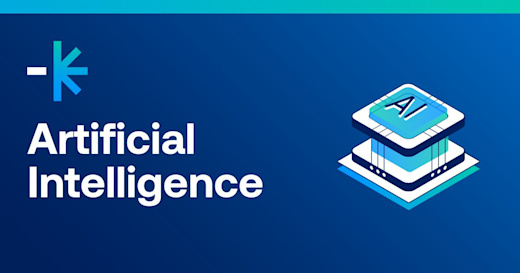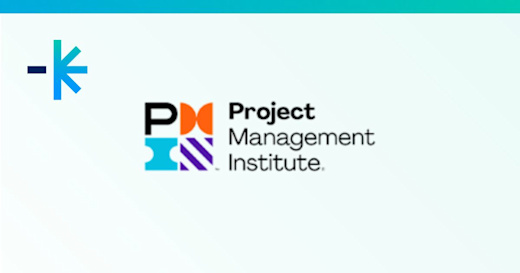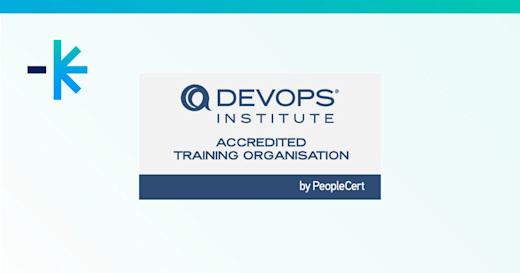You may have heard the term “Citizen Developer. " Perhaps you’ve paused to wonder if you know one or what the term means.
With the democratisation of IT services that the move to the cloud has afforded, those who traditionally were the consumers of IT services are now in the driving seat. We can build applications that automate our day job, as no one knows our day job like we do.
The ability to tap into rich data insights through services like Power BI lays the foundation for great chaos or enormous success. The deciding factor is training.
You can familiarise yourself with the different tools through a Power Platform course. There are also opportunities to get certified, with guidance from a Microsoft-certified trainer and hands-on labs.
What is Microsoft Power Platform?
Microsoft’s Power Platform is designed to ease day-to-day tasks for the average end user. Users can also operate between its different services seamlessly. It has four best-in-class services: Power BI, Power Apps, Power Automate, and Power Virtual Agents.
Power BI - Microsoft’s business analytics service provides real-time insights from data. It lets you tell a data story through rich visualisations and highly personalised reports.
Power Apps - This a no-code / low-code environment where you build mobile-friendly business apps. You can connect the apps to third-party systems and other Microsoft business applications, such as MS Teams.
Power Automate - This no-code toolset supports workflow automation. It allows you to automate business processes through templates, triggers, alerts and Robotic Process Automation (RPA).
Power Virtual Agents - Creating intelligent customer service bots is friendlier and more approachable with a guided, no-code graphical interface. AI-powered capabilities help you deliver personalised bot conversations to resolve customer issues and automate frequently asked questions.
What is Power Platform used for?
Power Platform is used for automating and digitising repeatable business processes to save resources and time and reduce errors when tasks are done manually.
Microsoft commissioned Forrester Consulting to conduct a Total Economic Impact ™(TEI) study focused on the potential return on investment (ROI) of deploying Power Platform and to evaluate the potential fiscal impact of Power Platform on their organisations. The study found:
50% - 70% reduction in costs for citizen developer projects completed using low code/no code tools
1% increase in revenues by Year 3 result from Microsoft Power Platform initiatives
Up to 5% increase in efficiency among users of solutions built with Microsoft Power Platform
A 48% reduction in application development costs
A whopping 502% ROI over three years
CRM Software shares how learning the tools can benefit your operations. Through the services within Power Platform, you can:
Create better customer experiences.
With accurate customer data and automated responses to frequently asked questions, customers can find information and lodge requests immediately so that a human agent has all the details needed to address their query.Establish a single source of truth.
How is your team performing overall? With integrated data and reporting tools, you can compare statistics in real-time. The tools can securely hold various data, including customer, financial and sales. Read the story of a student who sat Power BI training. The training supported her work in the Finance team of a community organisation that provides aged care, disability and mental ill-health support.Provide forecasting and analysis.
Tools within Power Platform, like Power BI, allow you to create visual reports of performance data easily. You can also view the performance of projects and how they are trending based on current data such as graphs or charts. You can connect Power BI to a Customer Relationship Management or Enterprise Resource Planning system (such as Dynamics 365) so you can provide context on the shared data and make actionable data-driven decisions.Automate tasks and processes.
You can automate business processes and operations within another tool or system using Power Automate. You can do so to simplify tasks and improve procedures that used to be required to be done manually. If your business needs an ordering process, Power Automate can receive orders from another system and automatically send them to the right managers for approval. From there, Power Automate can move the order to the supplier.
Which power platform training course is right for you?
There is a high demand for professionals who can build solutions using this rapidly growing technology. If you are interested in learning and earning Power Platform certifications, you can find information on recommended courses based on your role.
Start with the Fundamentals:
Power Platform Fundamentals (PL 900)
In this course, you can learn how Microsoft Power Platform technologies can improve processes and help drive business outcomes. This is designed for candidates seeking to start their journey building solutions with Microsoft Power Platform.
Advance based on your role:
Power Platform App Maker Associate (PL 100)
This is designed for professionals whose role involves envisioning and creating business solutions to simplify and automate tasks and processes. They understand the data they are working with, the issues they must resolve, and the required procedures and app experiences. The candidate may not have formal IT training but is comfortable using technology to solve business problems.Power Platform Functional Consultant Associate (PL 200)
Here, students can learn to configure Microsoft Power Platform solutions and apps for discovery, capturing requirements and engaging subject matter experts and stakeholders. Learn to create application enhancements, tailored user experiences, process automation and reporting.Power Bl Data Analyst Associate (PL 300)
Through this certification course, candidates can learn to deliver actionable insights by working with available data and applying domain expertise. Provide meaningful business value through easy-to-comprehend data visualisations, enable others to perform self-service analytics and deploy and configure solutions for consumption.Power Platform Developer Associate (PL 400)
Students can learn to design, develop, test, secure and troubleshoot Microsoft Power Platform solutions. Implement components of a solution that include application enhancements, custom user experiences, system integrations, data conversions and custom process automation.Power Platform RPA Developer Associate (PL 500)
Candidates can learn to automate time-consuming and repetitive tasks with Microsoft Power Automate. Review solution requirements, create process documentation, and design, develop, troubleshoot, and evaluate solutions. They work with business stakeholders to improve and automate business workflows.Power Platform Solution Architect Expert (PL 600)
This is designed for solution architects who lead successful implementations and focus on how solutions address organisations' broader business and technical needs. This role requires the ability to identify opportunities to solve business problems.
Learn Power Platform with Lumify
Microsoft Power Platform training and certification support both professionals and businesses. Individuals can get qualifications for career advancement and add more value to the organisation.
Lumify Work (previously known as DDLS) is a leading provider of corporate IT and process training and a learning partner of Microsoft in Australia, New Zealand and the Philippines. Our pool of Microsoft Certified Trainers (MCTs) deliver robust training courses to help professionals prepare for certification. Learn more when you access our brochure on Microsoft certifications. Access our eBook on Power Platform to learn more about how Lumify can support you.
We're thrilled to announce that Lumify Work has been honoured with the Microsoft MCT Superstars Award for FY24. This is a testament to the high quality of our Microsoft Certified Trainers (MCTs) across Australia and New Zealand.
And through our Lumify Anywhere platform, your team can receive training based on their scheduling and logistical needs (in person, virtual or hybrid).








